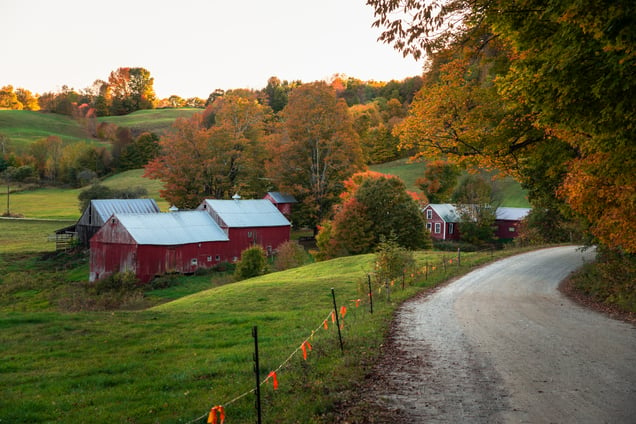Rural Recruiting in 2021: 5 Tips on Sourcing Rural Physicians
By: John Mehall, MD
In parts one and two of our series, “Rural Recruiting in 2021”, we discussed the current landscape of rural medicine and discussed how the pandemic has led to some unexpected rural recruiting tailwinds. In part three of our series, we’ll show you how to source rural physicians, and tell you why compensation isn’t as important to physicians as you think it might be.
Tips on Sourcing Candidates for Rural Positions
Despite factors that might steer certain candidates away from rural practices, there are a number of strengths that rural practices offer as well. Remember, physicians who are interested in rural work are often a different set of candidates than those interested in urban positions — your recruiting methods and resources should be tailored to incentivize your candidate as an individual. Keep the following strategies in mind when searching for candidates to fill your rural positions.
1. Lifestyle Preferences
Look for candidates who seem to enjoy an outdoor or active lifestyle. Does that person like fishing, hiking, biking or other outdoor activities? Many rural areas are ideal places for all of these sports and you can leverage them to help sell the location.
2. Recruit From Rural Training Programs
The very act of enrolling in a program in a rural area shows that a young doctor is interested in the small-town lifestyle. Additionally, some of these programs even specialize in training new doctors to be prepared for the nuances of rural medicine — meaning that doctors in these programs are likely seeking out work in rural areas upon graduation. Some of these programs might include: Des Moines University Rural Medicine Educational Program (RMEP), Dartmouth Geisel Rural Health Scholars, East Tennessee State Rural Primary Care Track, and Auburn University Rural Medicine Program.
3. Always Be Networking
You’ve heard this before and we’ll say it again — recruiting is all about who you know. You never know where you might make a connection that could lead to a job placement down the road, so make sure you are always meeting new people, and getting the word out about what you do even in the non-medical community. For example, maybe someone in the area has a friend currently in residency and you can connect with that person. You never know where you could meet a candidate, so be sure to bring your A-game everywhere you go.
4. Look for Candidates That Have Ties to Rural Areas
Physicians who have a rural background are much more likely to be interested in a rural position. A NCBI study found that as many as 70% of rural providers had a rural background already.

5. Start Early
Seek out eager and aspiring medical students that are from a rural community and offer incentives such as paying their medical tuition in return for commitment to serving there after graduation.
Compensation Isn't Everything
While compensation is typically a critical factor when recruiting and retaining physicians to rural markets, it’s important to take into account that most rural facilities don’t have excess money to throw at candidates given the mounting financial pressures stemming from COVID-19. Amitabh Chandra, Director of health policy research at Harvard University’s John F. Kennedy School of Government, says:
“The amount of money that you’d need to try and make up for what these doctors could make in the city would be cost-prohibitive,” Chandra explains. “We aren’t talking about the state or other agencies adding 5 percent in extra wages but more like 40%, 50%, maybe even 60% to make up the difference. Instead of focusing on salary, we need to think more creatively about how we can make rural America more attractive to doctors and their families.”
The data also shows the emphasis on compensation may be overstated. In fact, a recent survey found that while 28% of physicians rank compensation as the top priority when assessing rural work opportunities, 40% of hospital administrators think it's the most important factor. Rather, the study finds that community culture remains the main focus for many physicians looking to work in rural markets.
“There are a lot of positives that come with working in a rural community, and for many of our candidates, those value propositions can be much more compelling than solely compensation. We find that many of our physicians that choose to work in these areas find more meaning in their work, becoming an integral part of their communities. There’s also perks like a slower pace of life and easy access to outdoor recreational activities – our hospital clients continue to be surprised about just how alluring these factors can be.”
-- Dr. John Mehall, Chief Medical Officer, Curative Talent
Rural Recruiting in 2021
Recruiting physicians to rural hospitals is complicated, and COVID-19 has added an additional layer of complexity. We’ve put together an A-Z guide to provide some helpful tips and strategies for rural hospitals and health systems to develop a robust, comprehensive recruiting strategy for 2021. Download the eBook by clicking the banner below.
1 Recruiting Rural Clinicians: The Doximity E-Book
2https://www.medicaleconomics.com/view/dealing-shortage-rural-physicians
3 https://www.dmagazine.com/healthcare-business/2019/08/rural-physician-recruiting-what-administrators-are-missing/
